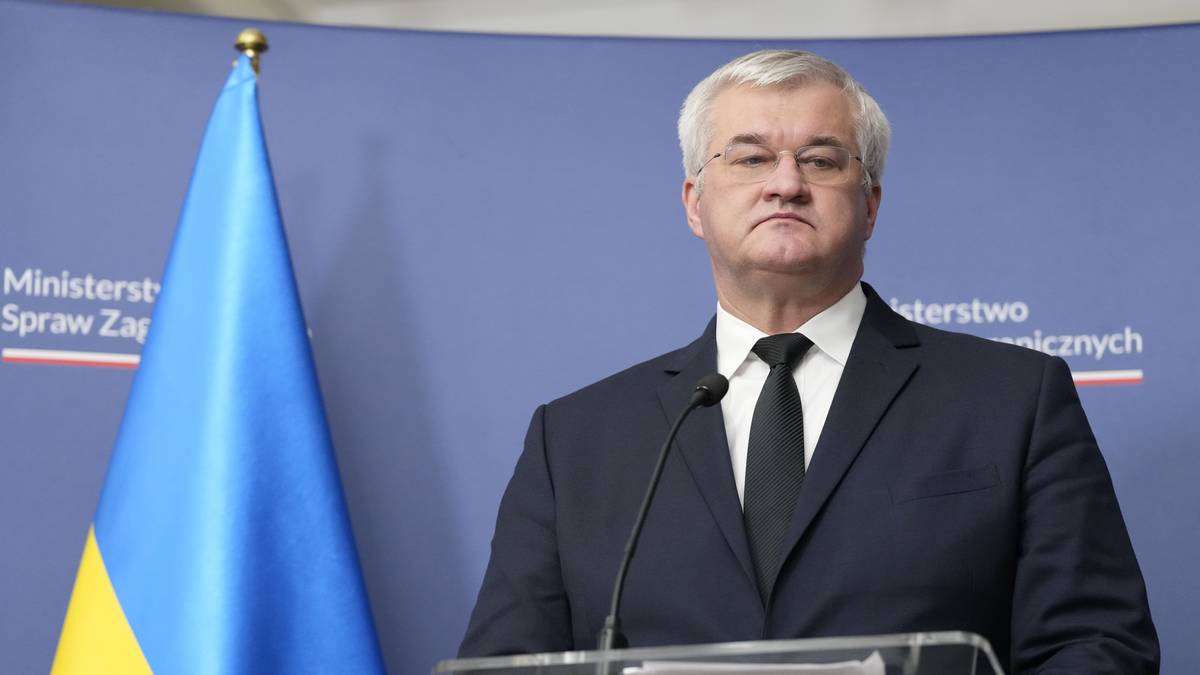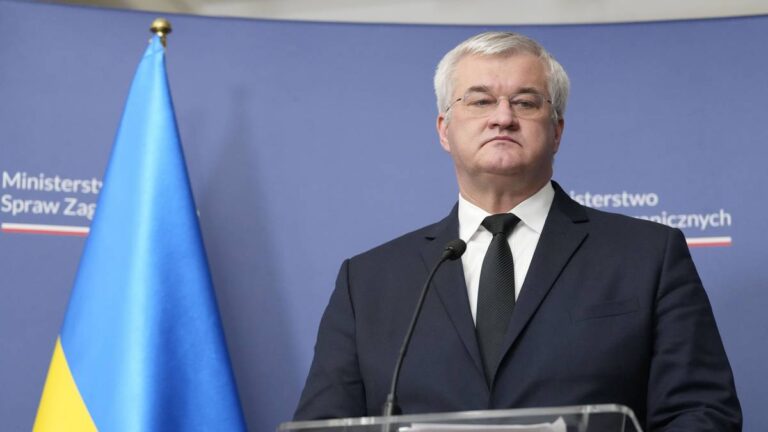
Sibiha thanked the members of the working group coordinated by the two countries’ Culture Ministers Hanna Wroblewska and Mykola Tocicki for reaching an agreement. “We believe that the agreement will be further implemented with mutual respect,” the Ukrainian minister said.
Excavations in Volhynia. Donald Tusk’s entry
Prime Minister Donald Tusk wrote on Friday afternoon on Platform . We look forward to good cooperation with Ukraine and await further decisions.”
On Thursday, Deputy Prime Minister and Minister of National Unity of Ukraine Oleksiy Chernysov met with Minister of Culture and National Heritage Hanna Wroblewska in Warsaw. “The ministers discussed the important role of culture in maintaining national identity and its impact on the socio-economic development of both countries,” the Ministry of Culture and National Heritage said in a statement.
See also: Excavations of Volhynia. “The government and opposition parties should speak with one voice.”
The Ministry of Culture said that due to the sensitive nature of the excavation process, detailed information on the sites, entities and applications being considered in this regard will be provided “after the activities are completed”.
Kosiniak-Kamish: This is the result of pressure and effective diplomacy.
Deputy Prime Minister and Defense Ministry Secretary Władysław Kosinak-Kamisz on Friday credited the Ukrainian side’s decision to exhume the Polish victims of the Volynian massacre as the result of constant pressure and effective diplomacy.
Foreign Ministry Spokesperson Paweł Włonski also emphasized that Poland had proven effective in this matter. – Foreign Minister Radosław Sikorski was criticized for being too harsh. But it turned out to be an effective approach, he said.
See also: “Finally a breakthrough.” Tusk on the first decision to exhume Volynian victims
He said the decision to exhume the first Polish UPA victims was “good for Polish-Ukrainian relations and for Ukraine itself.” – It is very important to create historical awareness and base it on truth. Vronsky points out that this will help Ukraine as a European nation.
Polish victims of UPA. conflict between Warsaw and Kiev
Since spring 2017, a conflict has been going on between Warsaw and Kiev over the ban on the search and exhumation of bodies of Polish victims of wars and conflicts on Ukrainian territory, introduced by the Institute of National Memory of Ukraine. . The ban was issued after the UPA monument in Hrushovice was demolished in April 2017.
From 2017 to 2024, the Institute of National Memory submitted nine official general applications to the Ukrainian government, including consent to the possibility of carrying out search and excavation operations in a total of 65 locations. Repeat applications were included (these locations were made iteratively due to necessity). Some of them have been positively considered and work has been carried out. Work was refused elsewhere and some requests went unanswered.
Meeting between Mr. Sikorski and Mr. Sibiha. “There is no problem in carrying out work.”
The decision to lift the moratorium on the search and exhumation of the bodies of Polish victims of the Volhyny massacre, which has been in place since 2017, was announced at a joint press conference by the foreign ministers of Poland and Ukraine at the end of November 2024. , Radosław Sikorski and Andriy Sibiha.
See also: Kiev reacts to Navrokki. “Tentative and manipulative statements.”
Ukraine subsequently confirmed that “there are no obstacles for Polish state institutions and private organizations to carry out search and excavation operations on Ukrainian territory in cooperation with competent Ukrainian institutions and in accordance with Ukrainian law.” , declared that it was “ready to positively consider the application.” In these matters. ”
The head of the Polish Foreign Ministry said the Polish side would mobilize its institutions, such as the Institute of National Memory, to “response to Ukraine’s demands.”
Difference in recognition between OUN and UPA
Poland and Ukraine have long been divided by memories of the role of Ukrainian nationalist organizations and rebel forces in the ethnic cleansing of some 100,000 people between 1943 and 1945. Polish men, women and children.
For the Polish side, this was a reprehensible crime of genocide (massive and systematic), but for the Ukrainian side, it was the result of a symmetrical armed conflict in which both sides were equally responsible. Moreover, Ukrainians want to recognize the OUN and UPA only as anti-Soviet organizations (due to post-war resistance to the USSR) and not as anti-Polish organizations.
read more
Source link

